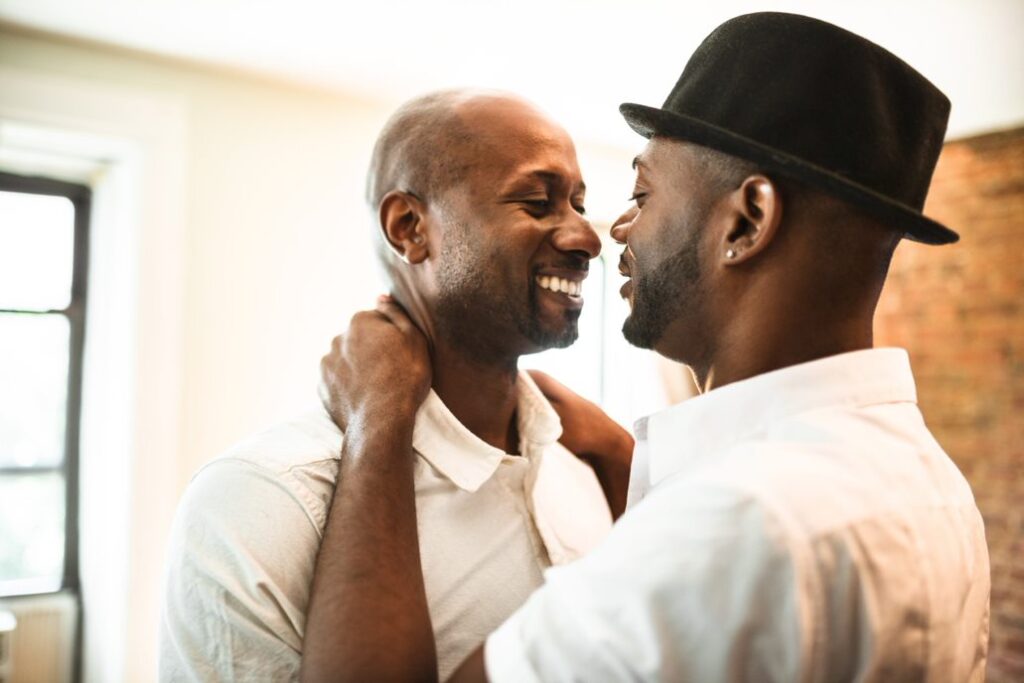I was born to West Indian parents in Birmingham 1967, and from the age of five to 15 I was raised by my father and stepmother. My relationship with my stepmother was very turbulent from day one. One of my earliest memories is of her calling me a “girl’s blouse” or a “puff” due to my keen interest in cooking from such a young age.
As the years passed, my brother would call me a “queer” or a “puff” in front of friends if I did not do as he said, which would often result in us fighting: under no circumstances was I going to let my brother think he could bully me like that in front of my friends! He continued with the name calling right up until a few years ago, when I stopped him in his tracks by telling him that he should be more concerned about who he is socialising and working with, because I know for certain at least five of his friends are “in the closet”.
When I was 15, my brother and I went to live with my grandmother and aunt in Highgate. I remember my aunt started going out and taking my younger male cousin with her. Little did I know she too was also keeping a secret: she was also gay. Still, I did not have the guts to confide in her about my sexuality due to her outing my cousin when they had a disagreement.
Two years later, my aunt found a partner, which meant that she wanted us out of her home. We were two 17 year olds, walking the streets with nowhere to go. I recall sleeping on benches and in a transit van.
At 18, I got a council flat in NecheIls, and was beginning to appreciate my independence, but still I could not fully be myself due to my brother’s comings and goings. He thought that because we were brothers he could just automatically come and live with me.
After a few years, I moved to Edgbaston and my eyes really opened. At this time there were no gay apps or internet, therefore meeting other gay people was done thorough placing advertisements in the lonely-hearts column or by word of mouth, or cruising. I was frequently asked by family and friends “when are you finding yourself a woman?” I always suspected that they might realise I was gay.
My mother died when I was 24. Before she died, I made my peace with her and forgave her for leaving my brother and I, and looking back I often thought: how the hell would I have coped with four children at the age of 19? She was only a young child herself and had no life. Before she died, out of the blue, she said that some men prefer men and some women prefer women, but so long as they were treating people with respect this should not be a problem. Sadly, she died about three weeks later. I consider this conversation as her giving me her blessing. From that day until now I have tried to live my best life.
I’d started going to Subway City on Thursday evenings. It was the first time in my life that I felt comfortable in my own skin and could mix with like-minded people. I would always see someone from my straight life who would ask me what I was doing in this club? My reply to them was: “same thing as you, I’ve come out for good night out”. My brother kept coming to my flat on Thursday evenings and I knew he was trying to catch me out. The night I said I was going out, and he could close the door on his way out, was the night he told my god-daughter (who was living with me at the time) that I was gay. I then felt pressured to come out to about 10 other people. This was the worst night of my life. I was on the phone for about 10 hours. Most people guessed what I wanted to say anyway!
Over the years I have known people of colour to have committed suicide because their families have disowned them when they came out. I have met married men of colour that are living double lives and, due to religion or having had children, are unable to be themselves.
When I came out, there were no centres like the Birmingham LGBT Centre, providing support for LGBT people, to take care of their mental, physical and cultural health. The staff that work there are either from the LGBT community or are LGBT-friendly and understand the stigma and prejudices that people from the LGBT community might face. I feel privileged to be working at the Centre with some amazing people that make a massive impact on the Birmingham LGBT community.

